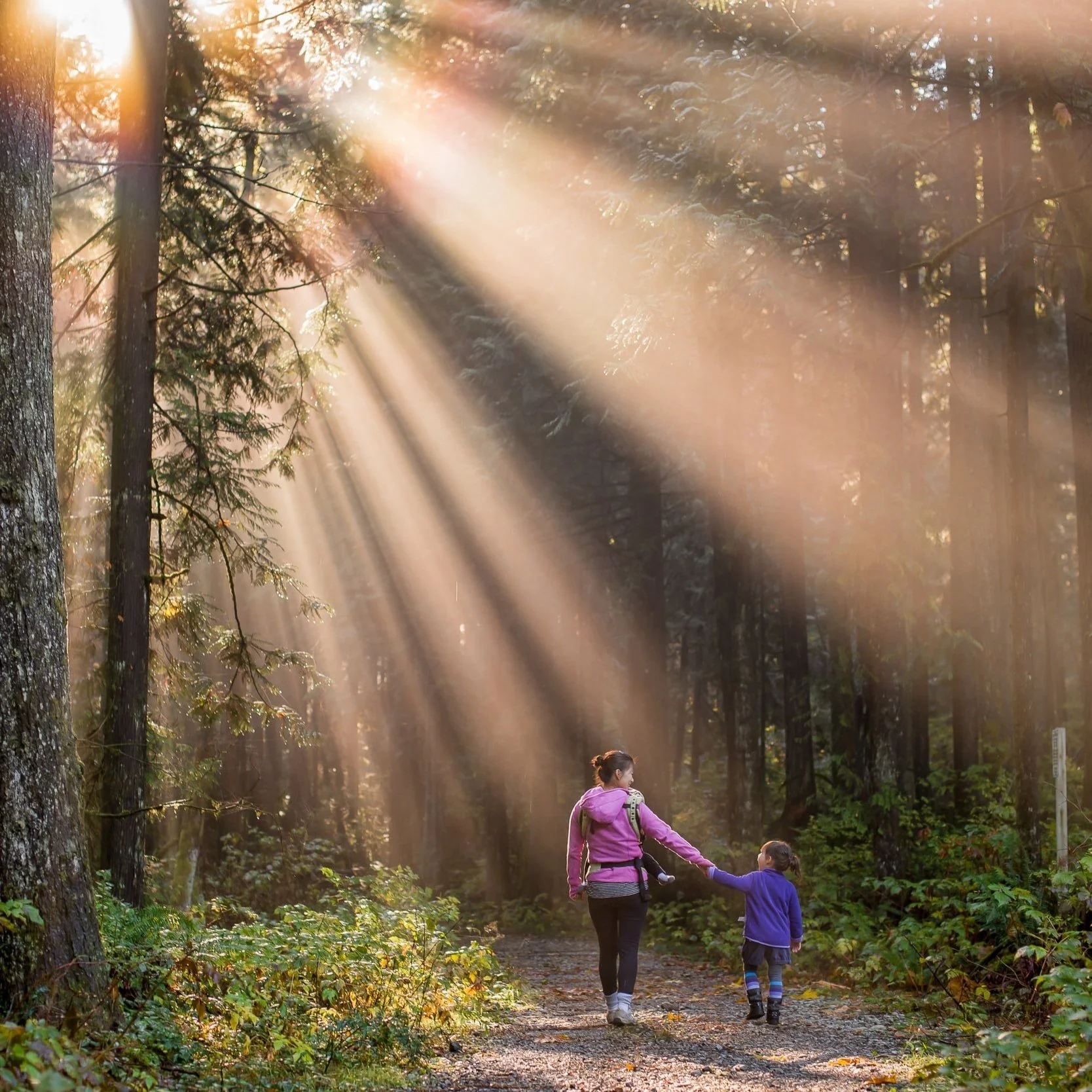6 Wellness Trends to Make You Feel Great
1. Movement and Mindfulness
Screen fatigue during the pandemic is an ongoing issue. We have become more dependent than ever on tech not only for work but also for recreation and social connection. It is difficult to consistently stay engaged in this virtual format, especially after having had to rely so heavily on screens for so long in the later stages of the pandemic.
Many people spend four or more hours daily using videoconferencing tools and, for the most part, they are seated the entire time. Our schedules tend not to require us to get up and move around, so we must integrate time for movement deliberately into our routines.
When using your screen, remember to get up regularly and stretch. Additionally, remember to go outside and take walks. You can even try creating a fake “commute” for yourself, taking time to walk outside after work to reset your frame of mind and create a distinction between work and leisure time.
When we rely on technology and videoconferencing for both work and social use, the lines become blurred and it can be both difficult to fully focus and engage with work as well as unwind and relax. Create the space for meaningful rest by compartmentalizing your schedule and creating structure for yourself, even if you are mostly staying at home.
2. Foster Social Connections
We are social creatures by nature and the lack of social interaction during periods of isolation is detrimental on both a personal and broader societal level. Lack of social engagement makes people more rude and impatient, and has even caused crime to increase. It is absolutely crucial to stay connected to friends and family, as social interaction helps to mitigate anxiety and depression.
This is also an important time to develop self-knowledge to guide your coping process. For instance, if you have introverted tendencies, it may be even more challenging to socialize with pandemic restrictions in place. To combat feelings of isolation, focus on cultivating a close friendship with one trusted friend to maintain a sense of connection.
Take a minute after reading this post to reach out to someone who encourages your well-being. Humans are naturally tribal, so trust building happens face-to-face. If you can meet in-person - that’s even better for deepening bonds with friends.
3. Narrow the Scope of Your Focus
There are so many factors that impact mental health and wellness. The most efficient way to progress in your wellness journey is to focus on one aspect at a time, which makes it easier to accomplish your goals.
Find a specific practice or behaviour that you want to implement and set aside some time to concentrate on that action specifically. For example, you can focus on practicing gratitude, fostering meaning in your daily activities, or eliminating negative self-talk.
Start right now by implementing a weekly gratitude intervention. Every Friday, set a reminder to give someone an authentic compliment. Go beyond saying a simple, “Good job!” or, nice hair”. Rather, say something like, “I saw your post the other day about your daughter making the swimming team and I just wanted to let you know that I see how hard you’ve worked to help her get there - it wouldn’t have been easy. You’re an amazing mom - don’t forget it!”
Make this a recurring practice. You can use this intervention at work with a “thank you” practice. Every Friday, set a reminder to say a meaningful thanks to a colleague. Once you have integrated one practice into your routine, you can begin to address the others.
4. Practice Compassion
We all deal with many stressors in our daily lives; the last thing anyone needs is to compound that stress with judgment from themselves or from others. It’s possible to get caught up in a toxic pattern of negative self-talk and inward criticism, to the detriment of your wellness. One way to combat this is to practice compassion towards others as well as yourself.
When you show compassion towards others, it is easier to extend that same constructive and healing mindset towards yourself. Accordingly, instead of saying “I am depressed”, acknowledge the underlying issues and reframe that self-talk as “I am in pain which is manifesting as depression”.
The next time you catch yourself having a negative or judgemental thought about yourself or someone else, try changing the narrative and re-centre your perspective in empathy. For example, we’re simply more emotionally volatile these days. Our brains have been under threat response for far too long and that’s making us less emotionally regulated. But, it’s important not to misdirect our anger.
I keep seeing these signs posted in public places requesting people to be nicer. One of my favorites was this one that read: “The whole world is short staffed. Be kind to the ones that showed up.”
Being kind creates a virtuous circle. We’re nicer to others, they show kindness back, we’re nicer to ourselves. Win. Win. Win.
5. Slowing Down
One of the earlier impacts of the pandemic was boredom or lack of novelty. People often compared that feeling of being in the film Groundhog Day, where the main character, played by Bill Murray, has to live the same day over and over again.
With an unprecedented amount of free time and the need to remain in isolation, people grew restless. Without their usual routine and interpersonal interactions, people were unsure how to fill the time. Many found solace in slowing down and partaking in time consuming, but ultimately rewarding, activities, such as baking bread from scratch. Pre-pandemic, this would be something that people generally would not have enough time or patience to do, but lockdown provided a unique opportunity to slow down and take the time to connect with ourselves and those in our close circles.
Another activity that rose in popularity during the pandemic was spending time in nature. Data shows that people spent more time outdoors visiting parks and birdwatching, some even trying these activities out for the very first time. While Covid reduced the access to some activities, it pushed us to explore novel interests. It also encouraged people to slow down - which may be one of the benefits to stem from such a challenging time.
6. Take a Well-Rounded Approach to Wellness
Wellness is multidimensional. As such, there is no single practice, treatment, or solution that will be a catch-all to issues affecting our mental wellbeing. Sleep, connection with community, physical health, work-life balance, movement and exercise, and stress management are all integral elements for overall wellness.
To ensure each of these individual practices don’t fall to the wayside, take an overall approach to your wellness routine. Well-being should not feel like workload. Integrating everything at once will feel overwhelming and may work against you. To maintain all of these components on a regular basis, break them down into micro-intentions. Small but achievable goals that take just minutes, not hours, each day.
Start today by taking just ten minutes to do something “frivolous”. Sit and read a magazine or a book. Have a bath. Enjoy your food by eating it more slowly and thoughtfully. Do absolutely nothing (we don’t do that enough). Most importantly, cut the guilt. We may feel like we’re being selfish or “frivolous” but that is not fact-based thinking. Even fifteen minutes to yourself can reduce anxiety, improve sleep, help you to manage stress, emotional volatility and anger.
One of the best ways to stick to our goals is to find a support system of people to talk to. Friends, family, or a counselor or therapist, helps to keep you in check and maintain mental health.
One of the most radical things you can do for your wellbeing is to accept your humanity. Constantly trying to regulate feelings of frustration and anxiety takes a toll, and it is important to learn to process and live with these feelings in a healthy way as they come. We have a tendency to be very solution-oriented and have cultural values that emphasize problem solving, which makes it hard to reconcile that the pandemic is not a problem we can solve quickly or on our own. The radical acceptance that life is different now makes it easier to cope with the change and makes moving forward possible.
Contact Us
Have a question? Leave a message!






